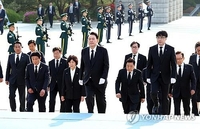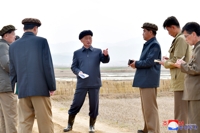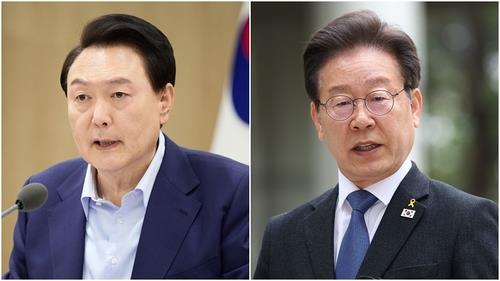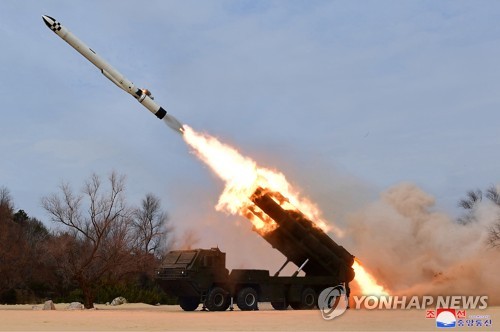Chinese battery manufacturers aggressively recruiting S. Korean engineers
SEOUL, Nov. 19 (Yonhap) -- Chinese rechargeable battery and electric vehicle (EV) manufacturers are offering high wages to South Korean engineers, causing concerns among local companies that could face a shortage of skilled workers, industry watchers said Sunday.
Sources said that Chinese companies are promising three to four times more pay for skilled engineers and research personnel, with those with 10 years experience being promised an annual salary of 400-500 million won (US$263,800-454,700) per year.
"China, in the past, had successfully attracted engineers in semiconductors and electronics areas to reduce the gap with South Korea, and now they seem to be using the same scheme to catch up in the battery sector," a local observer said.
He said those working for leading battery producers LG Chem, Samsung SDI Co. and SK Innovation Co. are being targeted.
"Some 30-40 percent of key personnel may be targeted, with most probably having been contacted by local headhunting firms working for the Chinese," he speculated.
Others said that somewhere around 100 South Korean engineers were already working for Chinese EV companies, and there is no way to know for certain how many others are actually in the world's No. 2 economy.
Industry experts said that the recruiting of local experts is troubling because the rechargeable battery business, like computer chips, requires making new breakthroughs that must be followed up by a manufacturing streamline process and cost cutting. Companies that can follow this course can stay ahead of the game, while those that do not will fall behind. They warned if the country does not have enough workers, it could soon find itself at a disadvantage in the global arena, especially since China aims to create a 600,000 EV market by 2020, which can create a surge in demand for experienced workers.
Beijing has already provided subsidies to EV and battery producers.
Related to moves by China, local industry insiders said that because the secondary battery market, which includes EVs, has not fully matured in South Korea and elsewhere, there is very little South Korean companies can do to match incentives being offered by Chinese rivals.
"There is a limit to how much companies here can give workers under such circumstances, which can pose challenges for the country's industry going forward," a market analyst said.
yonngong@yna.co.kr
(END)
-
 Overdue debut of Korean abstract art pioneer Yoo Young-kuk at Venice Biennale
Overdue debut of Korean abstract art pioneer Yoo Young-kuk at Venice Biennale -
 Defense chief says N. Korea's hypersonic missile 'unsuccessful' in last-stage glide flight
Defense chief says N. Korea's hypersonic missile 'unsuccessful' in last-stage glide flight -
 Relax, immerse yourself in scents at Venice Biennale's Korean Pavilion
Relax, immerse yourself in scents at Venice Biennale's Korean Pavilion -
 N. Korea has capability to genetically engineer biological military products: U.S. report
N. Korea has capability to genetically engineer biological military products: U.S. report -
 S. Korea marks 30th anniv. of Korean Pavilion at Venice Biennale with contemporary art
S. Korea marks 30th anniv. of Korean Pavilion at Venice Biennale with contemporary art
-
 Overdue debut of Korean abstract art pioneer Yoo Young-kuk at Venice Biennale
Overdue debut of Korean abstract art pioneer Yoo Young-kuk at Venice Biennale -
 Relax, immerse yourself in scents at Venice Biennale's Korean Pavilion
Relax, immerse yourself in scents at Venice Biennale's Korean Pavilion -
 Artist Lee Bae captures ethereal Korean aesthetics at Venice Biennale
Artist Lee Bae captures ethereal Korean aesthetics at Venice Biennale -
 S. Korea marks 30th anniv. of Korean Pavilion at Venice Biennale with contemporary art
S. Korea marks 30th anniv. of Korean Pavilion at Venice Biennale with contemporary art -
 Defense chief says N. Korea's hypersonic missile 'unsuccessful' in last-stage glide flight
Defense chief says N. Korea's hypersonic missile 'unsuccessful' in last-stage glide flight
-
 Facebook page unveils photos of BTS member V in counter-terrorism unit gear
Facebook page unveils photos of BTS member V in counter-terrorism unit gear -
 Gov't likely to accept university chiefs' request to lower med school enrollment quota
Gov't likely to accept university chiefs' request to lower med school enrollment quota -
 S. Korea not invited to G7 summit meeting this year: sources
S. Korea not invited to G7 summit meeting this year: sources -
 Yoon's approval rating sinks to lowest point since taking office
Yoon's approval rating sinks to lowest point since taking office -
 S. Korea, U.S. special operations forces stage airborne drills
S. Korea, U.S. special operations forces stage airborne drills




















